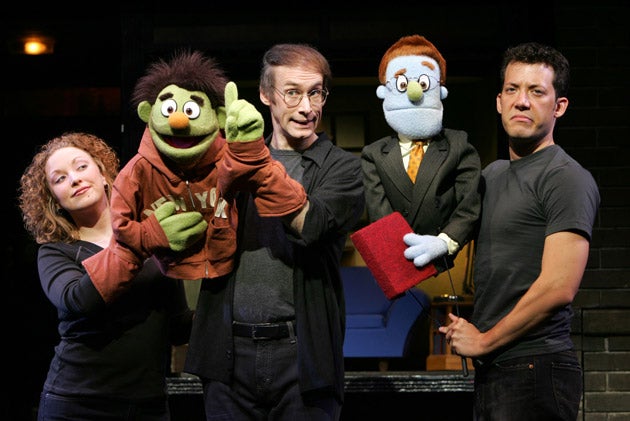Observations: Highly strung performers want puppetry on their CVs

Your support helps us to tell the story
From reproductive rights to climate change to Big Tech, The Independent is on the ground when the story is developing. Whether it's investigating the financials of Elon Musk's pro-Trump PAC or producing our latest documentary, 'The A Word', which shines a light on the American women fighting for reproductive rights, we know how important it is to parse out the facts from the messaging.
At such a critical moment in US history, we need reporters on the ground. Your donation allows us to keep sending journalists to speak to both sides of the story.
The Independent is trusted by Americans across the entire political spectrum. And unlike many other quality news outlets, we choose not to lock Americans out of our reporting and analysis with paywalls. We believe quality journalism should be available to everyone, paid for by those who can afford it.
Your support makes all the difference.It's 7.30pm in a dusty hall in north London and 20 people sit in a circle, watching a man try to convince us that his overcoat has come to life. There's just a hint of breath as the coat's back rises and falls, then a head forms from a mass of collar, surveys the room, and causes a collective gasp as it lopes towards us on a gorilla-like sleeve.
The man is Steve Tiplady, a guru to the assembled actors I've joined on his adult performers' puppetry course at the Little Angel Theatre. "Performers really want puppetry on their CVs these days," says Tiplady, who has worked with the RSC. "It's a fundamental theatrical tool that for a long time was ignored."
With puppets propping up major shows such as War Horse, Avenue Q and the critically acclaimed Peter Pan in Kensington Gardens, actors who went through drama school without so much as reaching into a glove are queuing up to learn.
"We search for objects to bring to life – jumpers, shoes, bin liners. Closing our eyes, we listen to the rhythm of our breathing, feel it run down our arms and enter the puppet; then we watch the puppet breathe," Tiplady says. Next, he says, "decide where the head of your puppet is, and focus on the back of it – if your gaze wanders to where you're going, the audience will watch you instead of the puppet."
During the break, I call Tim Lewis, who plays Captain Nicholls and operates one of the life-sized puppets in War Horse. "You have to use your peripheral vision," he tells me. "If I turned my own attention to a sugar cube someone was offering the horse it would all go wrong.
There were three of us operating the animal; we developed our own language of noise cues – a little whinny or neigh to let us all know we were about to rear up."
Back at the Little Angel, two mackintoshes are snogging passionately. "Puppetry isn't just physical skill, it's the performer's own belief that the puppet's alive," says Tiplady. "That's when the magic happens."
'War Horse', New London Theatre to 12 February; 'Avenue Q', Gielgud Theatre, London, to 26 Sept; 'Peter Pan', Kensington Gardens to 31 August
Join our commenting forum
Join thought-provoking conversations, follow other Independent readers and see their replies
Comments